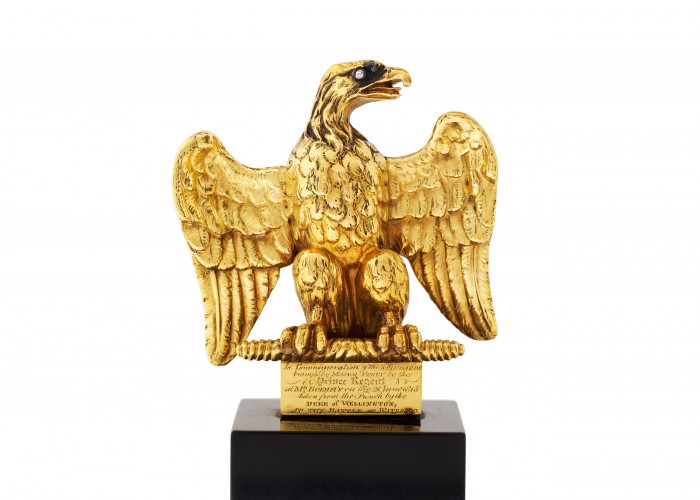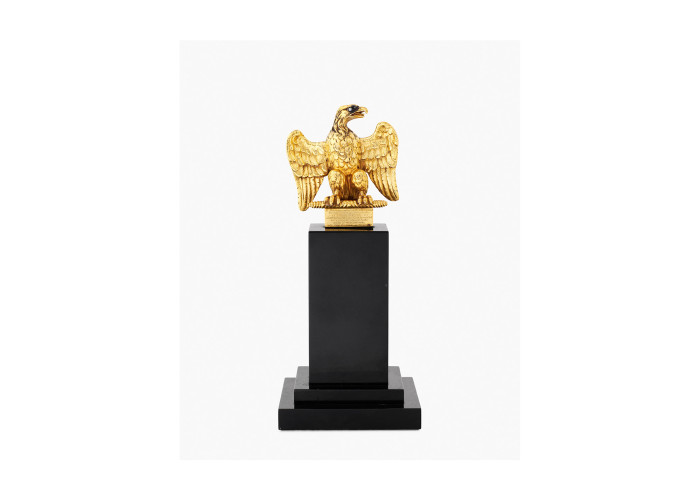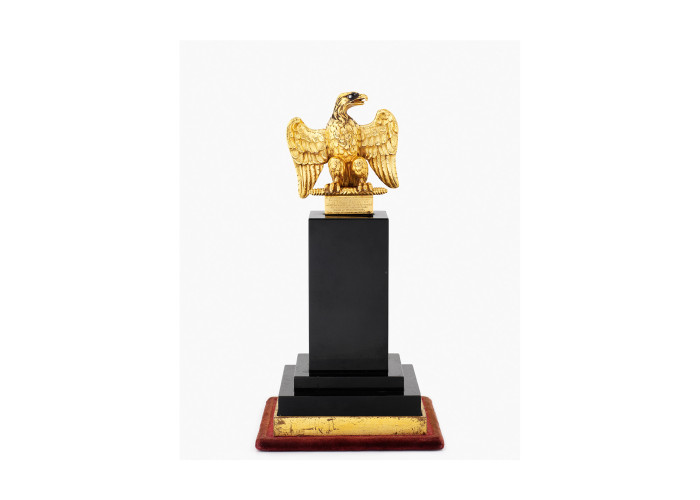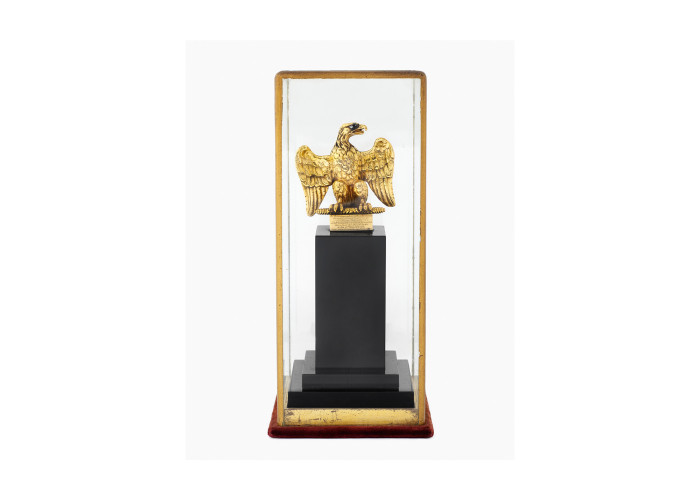The Prince Regent’s Apology
This beautiful golden miniature is a royal gift, from the Prince Regent, the future George IV, to apologise for spoiling a party he attended soon after the Battle of Waterloo. The gold eagle was given to the Prince Regent’s hostess in compensation for the interruption to her party by the arrival of the Waterloo Dispatch, carrying news of the Allied victory.
Major Percy arrived in London on 21 June and found the Prince Regent at a party given by Madame Boehm at No. 16 St James’s Square. He dashed in and laid the captured French standards at the feet of His Royal Highness, and delivered the despatch to him. This news meant the end of Madame Boehm’s party, and by way of apology, the Prince Regent presented this replica gold eagle to her. Despite this, however, years later she was known to have still bemoaned the night that her party was interrupted.
Major the Hon. Henry Percy, of the 14th (The Duchess of York’s Own) Regiment of Light Dragoons, was an aide-de-camp (ADC) to the Duke of Wellington. He was the only one of Wellington’s ADC’s not to be either killed or wounded during the battle, so he was given the honour of taking the despatch back to England. He carried it in a purple velvet handkerchief sachet, given to him as a keepsake by a lady he met at the Duchess of Richmond’s ball on the eve of the battle.
Percy sailed from Ostend and, having rowed ashore, landed near Broadstairs at around 3pm. He then travelled to London, arriving at about 10pm. He tried to find Earl Bathurst, to whom the despatch was addressed, at his office in Downing Street, but the earl was attending a Cabinet dinner given by Lord Harrowby at his home, 44 Grosvenor Square. It was here the Cabinet received the news. Lord Harrowby then announced the news to the assembled crowd outside.
Percy next needed to find the Prince Regent, as directed by Wellington in his dispatch, to lay the captured standards before him. He set off to St James’s Square, where the Prince Regent, along with the Duke of York and the Foreign Secretary, Lord Castlereagh, were attending Madame Boehm’s party. The news was received with a mixture of celebration, and anxiety for the human cost of the battle.
Intriguingly, news of the victory had already reached London the day before, but had not become public knowledge. Nathan Rothschild, a banker, had an excellent intelligence network across Europe. One of his agents, Roworth, arrived 24 hours ahead of Percy with a Dutch paper giving the news. Percy’s arrival with the dispatch was the first official confirmation of the victory, however.
Wellington presented Major Percy with a gold watch made by Bréguet, a famous Paris jeweller, for his efforts in delivering the dispatch. He was also created Commander of the Order of the Bath, and promoted to lieutenant colonel, this promotion being backdated to the Battle of Waterloo. He died in 1827, aged 40.
-
Curatorial info
- Originating Museum: Private collection
- Accession Number: N/A
- Production Date: c. 1815
- Material: Gold
-
Use this image
You can download and use the high resolution image under a Creative Commons licence, for all non-commercial purposes, provided you attribute the copyright holder.
- Rights Holder: Private collection.
- License Type: Creative Commons
Private Collection
Some objects - such as this one - are owned by private collectors. Waterloo 200 cannot give information on the ownership or location of these items.














